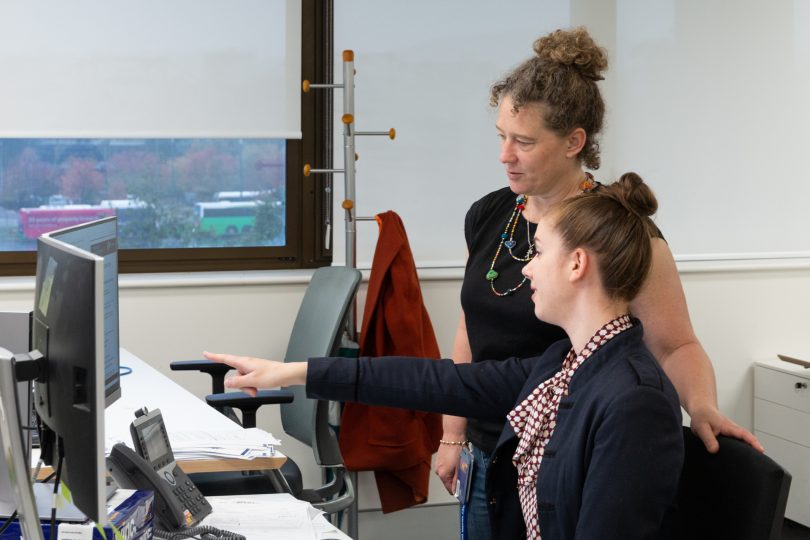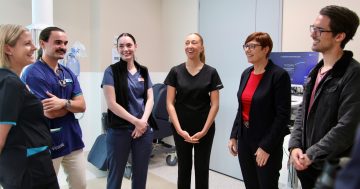
Contact tracing is vital to suppressing the spread of COVID-19, ACT Chief Health Officer Dr Kerryn Coleman (standing), said. Photo: Dominic Giannini.
An e-training program developed by ACT Health and the Australian National University (ANU) is now being used to train public health officials in the US and Europe.
The program includes scenario-based exercises and provides feedback, data collection templates for case investigations and contact management, and FAQs for conducting contact tracing interviews.
The online course has allowed more than 100 medical, nursing and public health students in Canberra to be upskilled and learn how to put their training into practice by learning how to effectively contract trace COVID-19 cases.
“It is a privilege to have the opportunity to be able to help the ACT community and provide support to the people you’re informing, often for the first time, that they are a close contact of a confirmed case,” ANU medical student Ben Kinchington said.
“The training program included some curly scenarios so we could be as well prepared as possible.”
Students are part of the ACT’s surge capacity contingency plan which will allow ACT Health to rapidly expand its staff during an exponential outbreak or possible second wave.
The course is one of the first in the world to directly address and educate students and health workers about the intricacies of contact tracing, Senior Research Fellow at the National Centre for Epidemiology and Population Health at ANU Dr Tambri Housen said.
“This collaboration has demonstrated that training university students as contact tracers has been a very effective model to strengthen surge capacity during a pandemic response,” Dr Housen said.
“The students were recruited from ANU and UC and have proven they are able to work under pressure, demonstrating independence and innovation.
“Australia’s field epidemiology training program is now collaborating with the Public Health Agency of Canada’s field epidemiology training program to produce e-learning modules for contact tracing.”
It has also been shared with organisations like the World Health Organisation, Médecins Sans Frontières (Doctors Without Borders) and the European Centre for Disease Prevention and Control.
The training materials have been accessed more than 200 times worldwide, leading ACT Health Minister Rachel Stephen-Smith to laud the ACT’s innovation and ingenuity within the health sector.
“Canberrans can be very proud of ACT Health and our universities, knowing the work they have done to protect our own community is now helping so many others across the world,” Minister Stephen-Smith said.





















